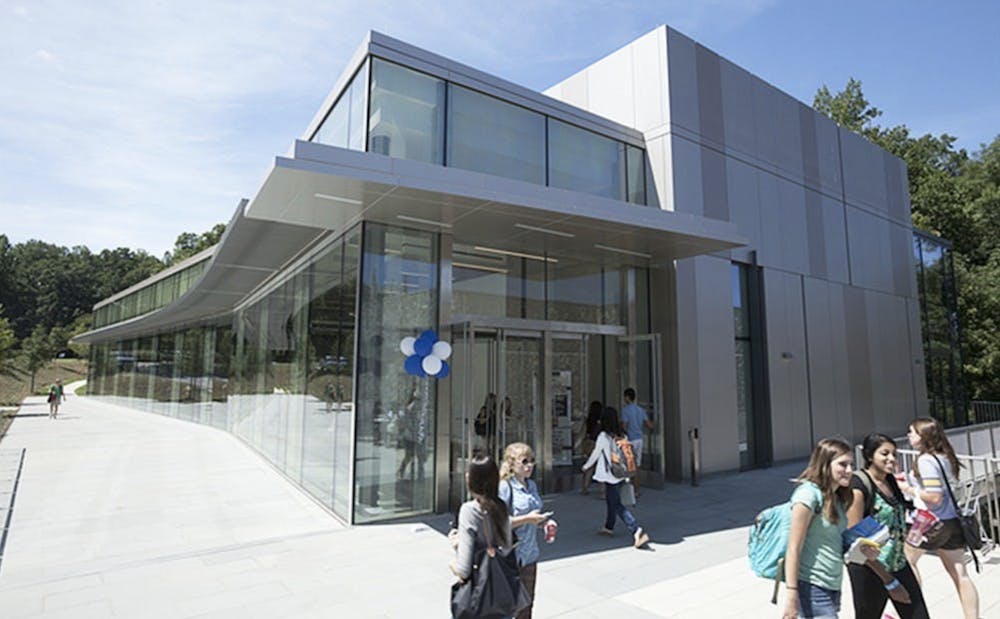With less than a week before spring 2022 classes start, Duke has again changed its plans for the start of spring semester due to the rapid spread of COVID-19. Here’s a summary of all the announcements made over the last few days.
When should I arrive on campus?
Residence halls will still open at noon on Jan. 2. However, Duke administration strongly encouraged students to delay their return to campus to between Jan. 3 and Jan. 18 in a Friday email. All classes will now be remote from Jan. 5 until Jan. 18.
What do I need to do for my pre-arrival PCR test?
The University is asking students to get a PCR test within 48 hours prior to arriving back on campus, though they recognize results may take longer than that time to return. Students must then complete an attestation, which has been sent through email, that they have complied with requirements.
Those who cannot schedule a PCR test prior to arriving on campus can instead sequester through two rounds of entry and surveillance testing. These students will receive an entry test once arriving on campus and a second surveillance test 48 hours later; they must sequester until both test results come back negative.
Do I need to make an entry test appointment?
No appointment is necessary for entry testing. Students arriving on Jan. 2 can take their entry test at the Bryan Center from 4 p.m. to 8 p.m. From Jan. 3 to 7, entry testing will be available at surveillance test sites, most of which are open from 9 a.m. to 4 p.m.
Students arriving on Jan. 8 and 9 will be able to complete entry testing between 1 p.m. and 5 p.m. at Marketplace, the Bryan Center and the Washington Duke Inn.
Vice President for Administration Kyle Cavanaugh told The Chronicle that students arriving on and after Jan. 10 should be able to complete entry testing at any testing site.
Priority for early entry testing from Jan. 3 to Jan. 5 will be given to graduate and professional students.
What do I do if I test positive on my pre-arrival PCR test or entry test?
If students learn that they are positive before traveling to campus, they should “stay where they are and not travel until after their contagious period,” according to Mary Pat McMahon, vice provost and vice president of student affairs.
Students who reside on campus and test positive will now isolate in their residence hall rooms. Dedicated isolation space in The Lodge and Lancaster Commons will be reserved for students living on campus with pre-existing medical conditions.
McMahon wrote that students living in on-campus dorms with roommates should have conversations about in-room masking and what to do if one roommate tests positive while the other roommate awaits test results.
"It's highly likely that by the time we learn that one roommate is positive, the other roommate is also positive," McMahon wrote.
McMahon added that one strategy might be for roommates to stagger their return times to Durham if possible.
Will any campus facilities be closed due to COVID-19?
All Duke facilities will remain open, and events and activities may continue as originally scheduled at the discretion of the sponsoring department or unit. However, on-campus dining will be “grab and go” with no indoor dining permitted until Jan. 18, and Duke Recreation and Physical Education announced on Dec. 23 that facilities will be closed until Jan. 10, with plans subject to change to University guidelines.
What are the vaccination requirements for students, faculty and staff?
Duke has mandated all students and employees receive the COVID-19 booster shot in January or as soon as they are eligible under Centers for Disease Control and Prevention and state guidelines.
All faculty and staff members must receive the COVID-19 booster shot as a condition of employment. Faculty and staff must receive and show documentation of their completed vaccination by 10 a.m. on Feb. 1, 2022 or within 28 days of their eligibility under CDC and state guidelines.
As of Dec. 28, more than 4,000 students and 21,000 faculty and staff members across the University and Duke University Health System have provided documentation of a booster.
Why are these policy changes happening?
Duke’s infectious disease and public health experts anticipate that "a large number of students will test positive during campus entry next week" and that "positive test results, isolation periods and caregiving responsibilities affecting our faculty and staff will have an impact on campus operations and services as the semester begins,” according to a Friday email sent by administrators.
The email noted that Duke has observed an “incredibly high number” of COVID-19 cases across their workforce this week and “increasing numbers” among students who have already arrived back in Durham.
Get The Chronicle straight to your inbox
Signup for our weekly newsletter. Cancel at any time.

Milla Surjadi is a Trinity junior and a diversity, equity and inclusion coordinator of The Chronicle's 119th volume. She was previously editor-in-chief for Volume 118.

